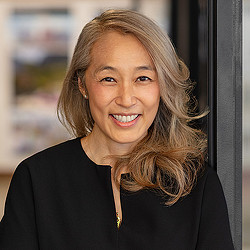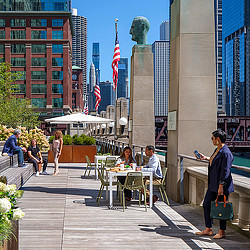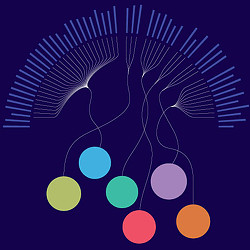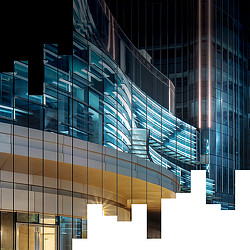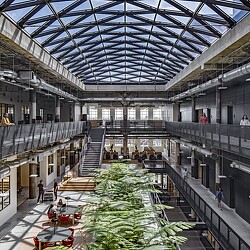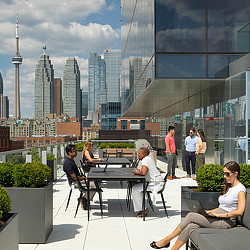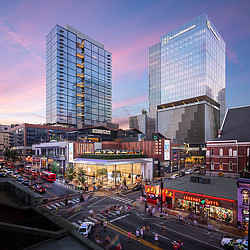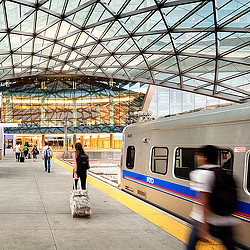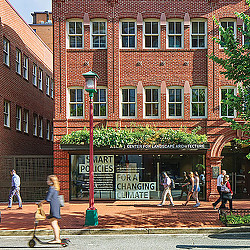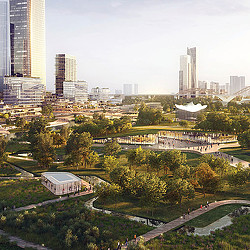What’s the Recipe for a Great Central Business District?
Honing in on the amenities, activities, transportation options, and experiences that urban residents desire.
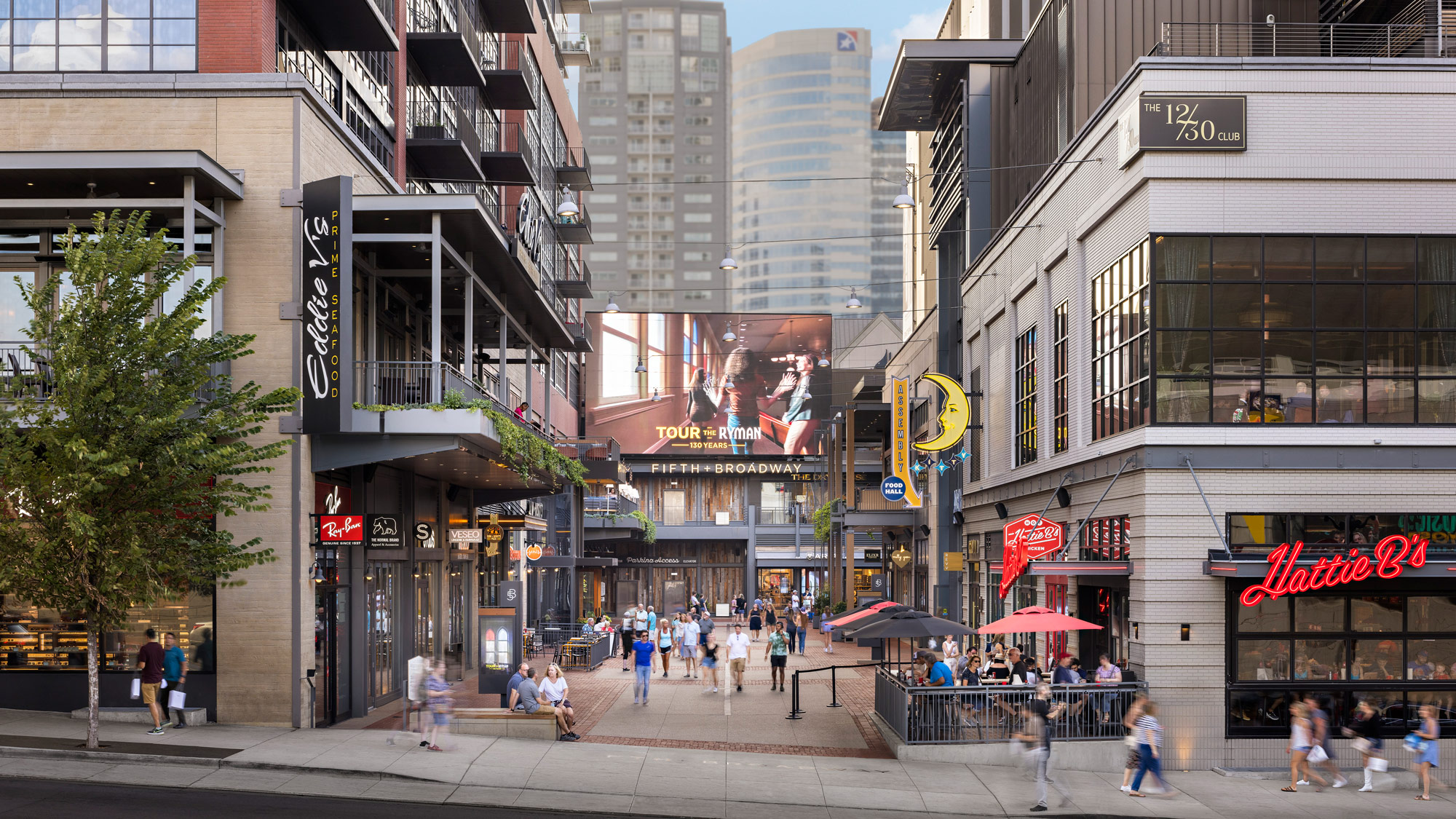
The importance of central business districts (CBDs) cannot be overstated. According to the 2023 Gensler City Pulse study, people who feel that their central business district provides a great experience are 79% more likely to say that their city as a whole provides a great experience. This study, focused on the future of downtowns and business districts, uses statistical analysis to identify aspects (called “predictors”) that predict or explain a great CBD experience.
For this analysis, 39 CBD aspects were identified and grouped into four categories that represented different dimensions of a CBD experience: amenities, transportation attributes, experience attributes, and activities. Below, we've outlined the top predictors of a great CBD experience pulled from the perspectives of 26,000 urbanites in 53 cities across six global regions.
Amenities
Amenities refer to desirable features or facilities found in the CBD. The amenities that most strongly predict a great CBD experience are the variety of food and beverage offerings, the quality of food and beverage options, and access to parks and nature. Our study finds that dining or socializing at restaurants and bars is one of the top reasons that people go to their central business districts. Global respondents are particularly satisfied with the dining options available in their downtowns. The quality and variety of food and beverage options are the most highly rated amenities of CBDs, with 81% of respondents agreeing that their CBD is a great place to dine out.
Additionally, the importance of outdoor social and recreational spaces to gather and socialize appeared multiple times throughout our study. Parks, bike paths, and access to nature were the top features that global respondents wished appeared more frequently in their CBDs. And when asked to identify features that were important to have in a great business district, more green space was the second most selected answer. The desire for outdoor space that increased during the pandemic continues to be a priority for urban residents.
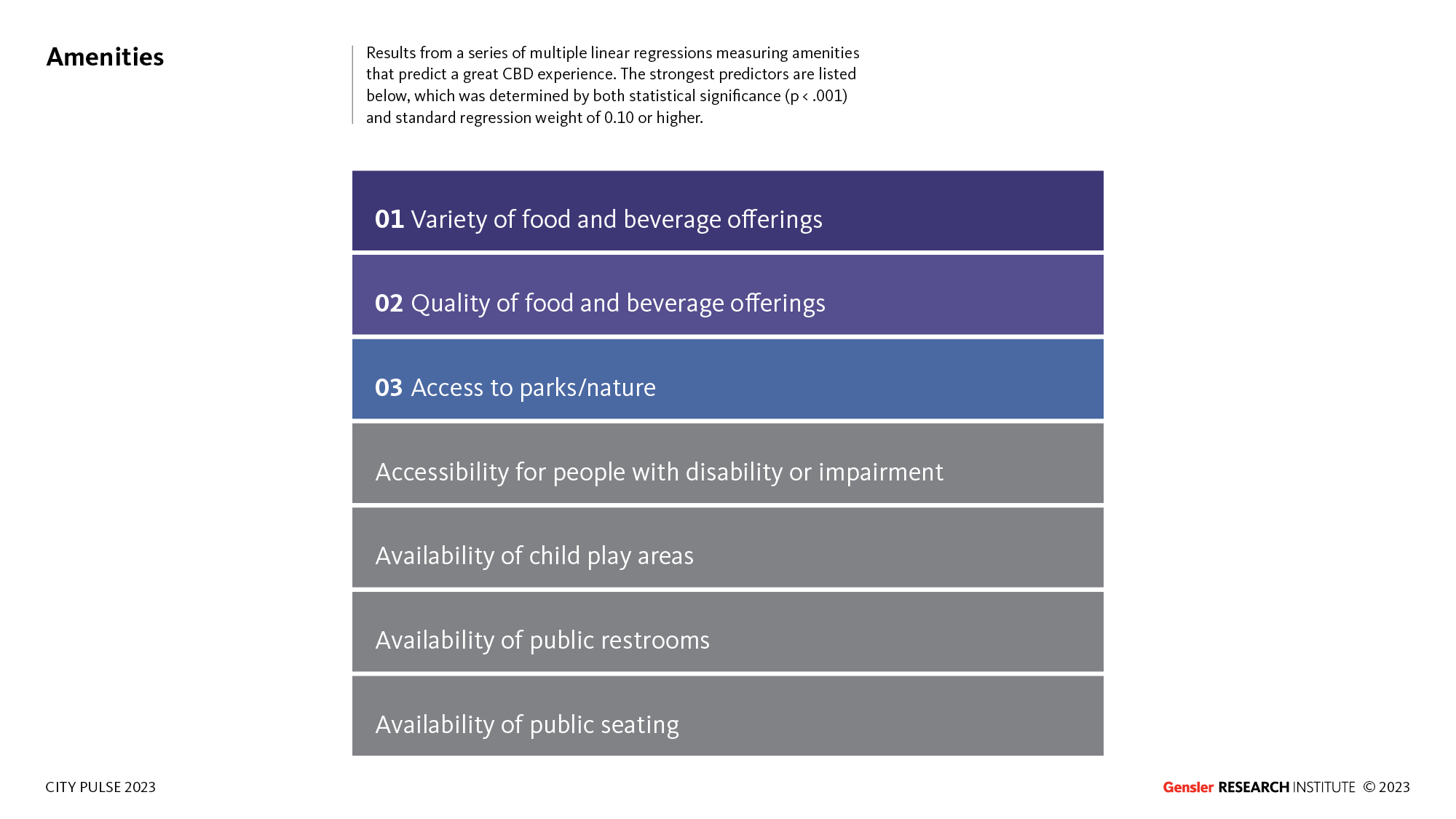
Transportation Attributes
Transportation attributes are characteristics that are related to traveling within the CBD, as well as to and from the CBD. The transportation attributes that most strongly predict a great CBD experience are walkways/paths/trails, ease of taxi/rideshare pick-up and drop-off, and ease of navigation. These preferences are consistent with findings from the 2022 Urban Mobility study. While respondents used cars and rideshares/taxis as much as they did before the pandemic, we found pronounced shifts in other forms of transportation. People reported using public transit less than they did before the global shutdowns and spent more time walking or using some form of micromobility.
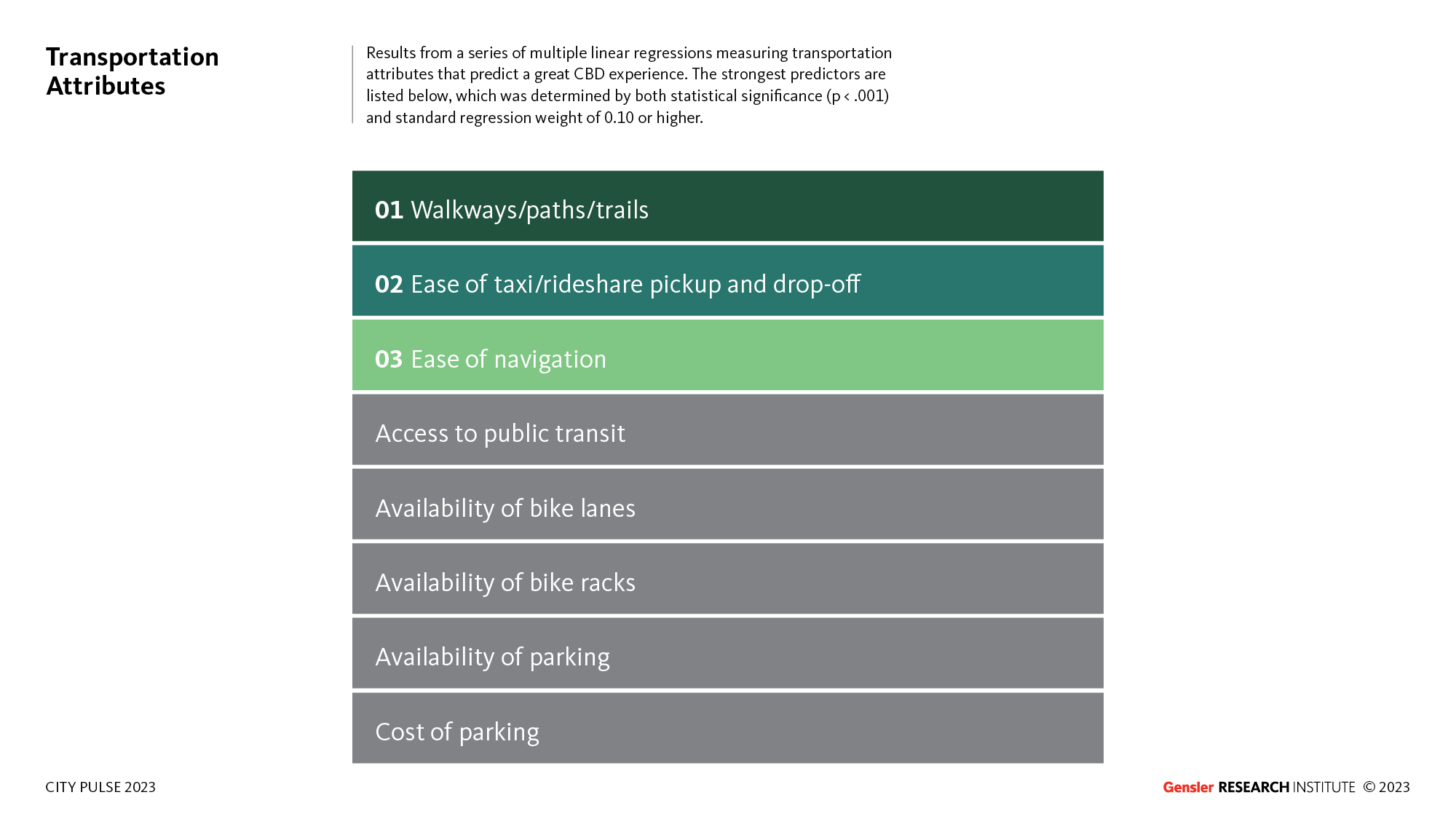
Experience Attributes
Experience attributes are CBD characteristics that are observed, felt, or known by a person. The experience attributes that most strongly predict a great downtown experience are the attractiveness of the central business district, affordability, personal sense of safety, and lighting. While we saw differences across each of the other categories that we surveyed, CBD attractiveness remained the top experience attribute for each global region.
However, our data indicates that these districts are failing to deliver in two key areas. When asked to identify which aspects of their central business districts had worsened over the last year, 64% of global respondents said their sense of safety and affordability within their downtowns had declined.
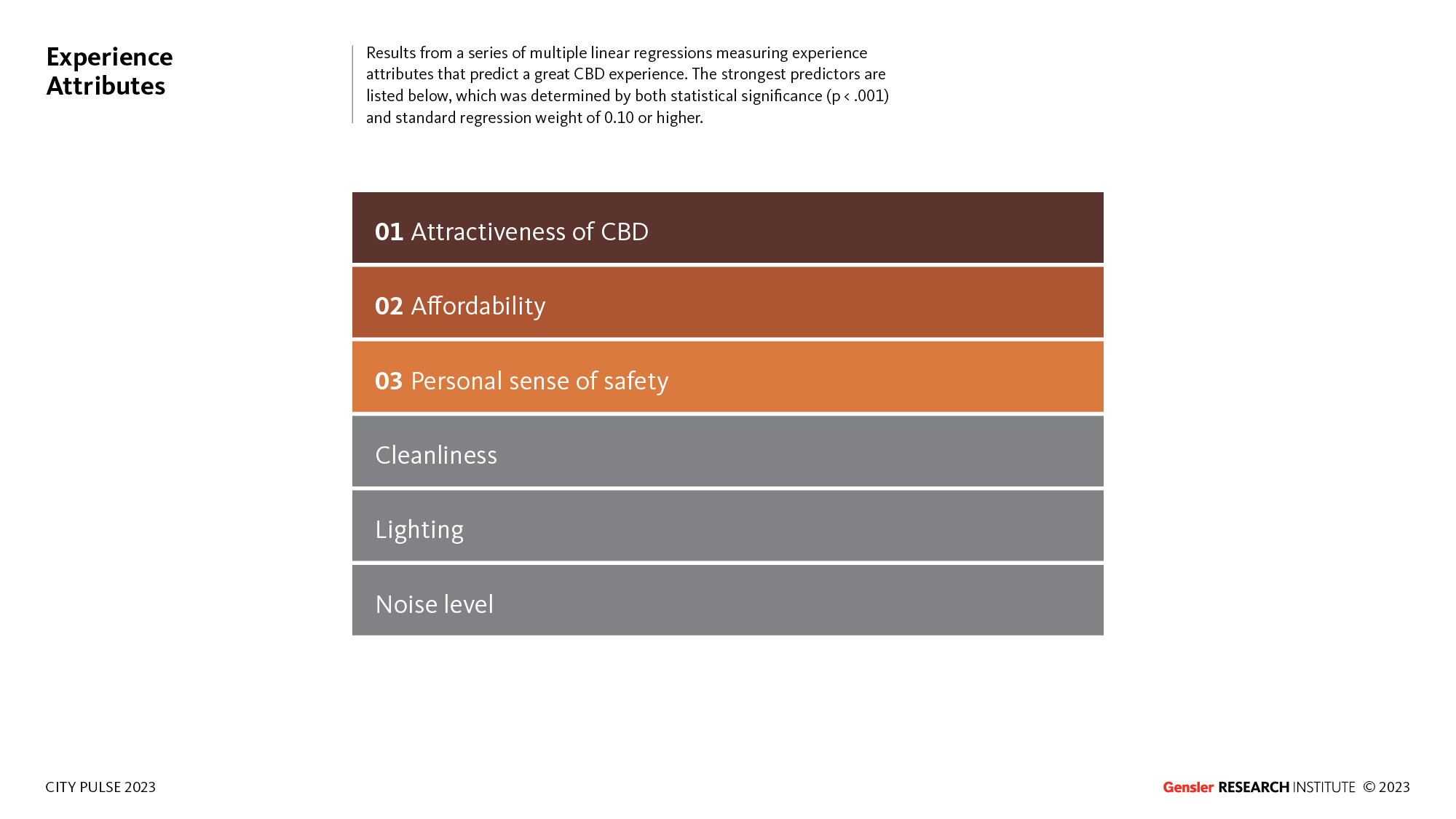
Activities
Activities refer to the different things one can do in a CBD. The activities that most strongly predict a great downtown experience are the CBD being an ideal place to work, have fun, and discover new things. Fortunately for recovery efforts, 76% of global respondents feel that their CBD is a great place to have fun, and 74% agree that their downtown provides opportunities for fun and discovery.
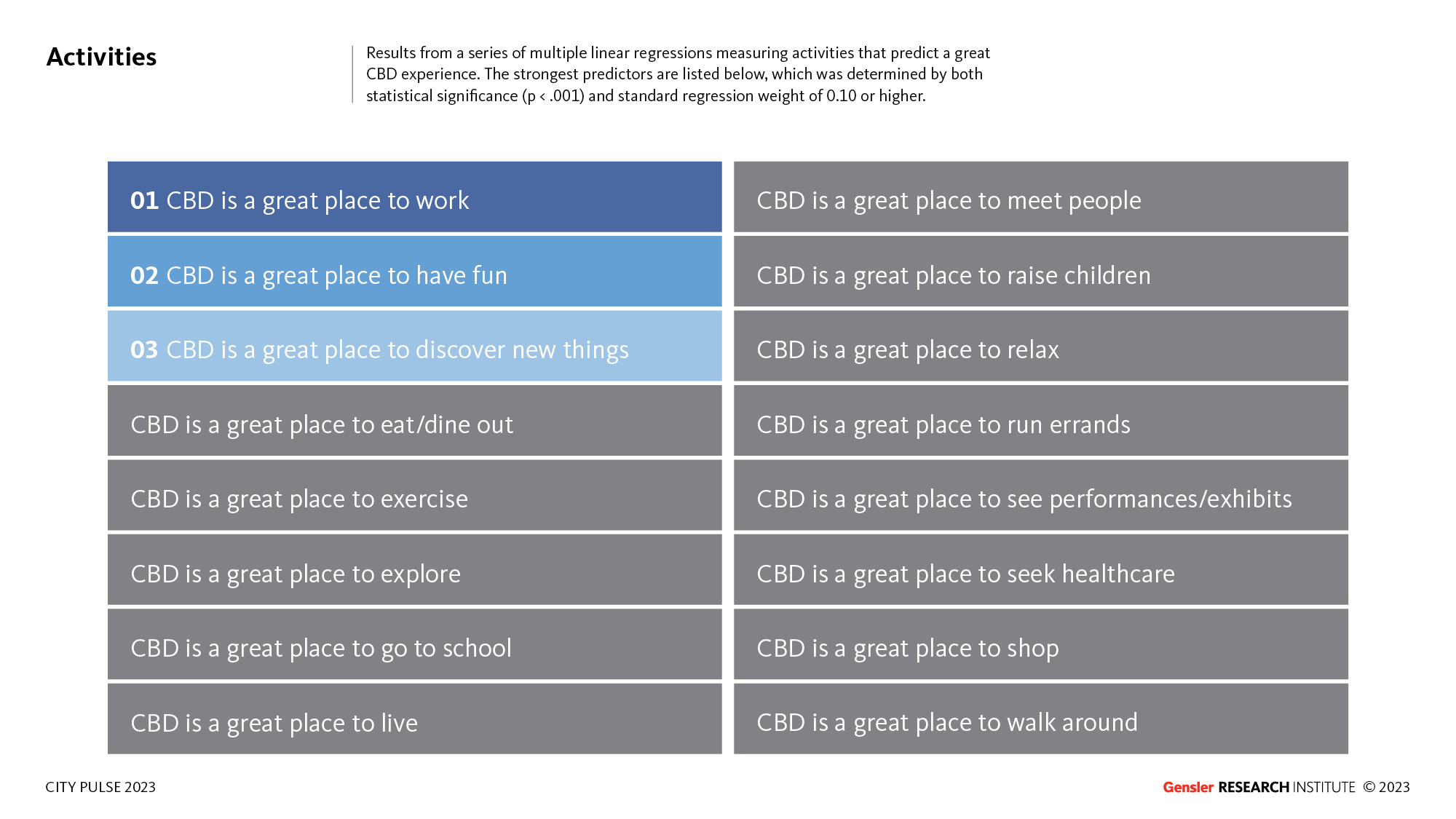
Overall Predictors
After determining the top transportation attributes, amenities, experience attributes, and activities that predict a great CBD experience, we conducted a regression analysis to identify the strongest overall predictors. We discovered that people who feel that their downtowns are fun, are great places to discover new things, and are attractive prove to be the most likely to agree that their CBD provides a great experience. However, despite the emphasis on recreation, discovery, and beauty, residents feel that their CBDs also need to be an ideal place to work. This demonstrates a clear need for downtowns to become activated, mixed-use, multi-modal urban centers while continuing to support business activities.
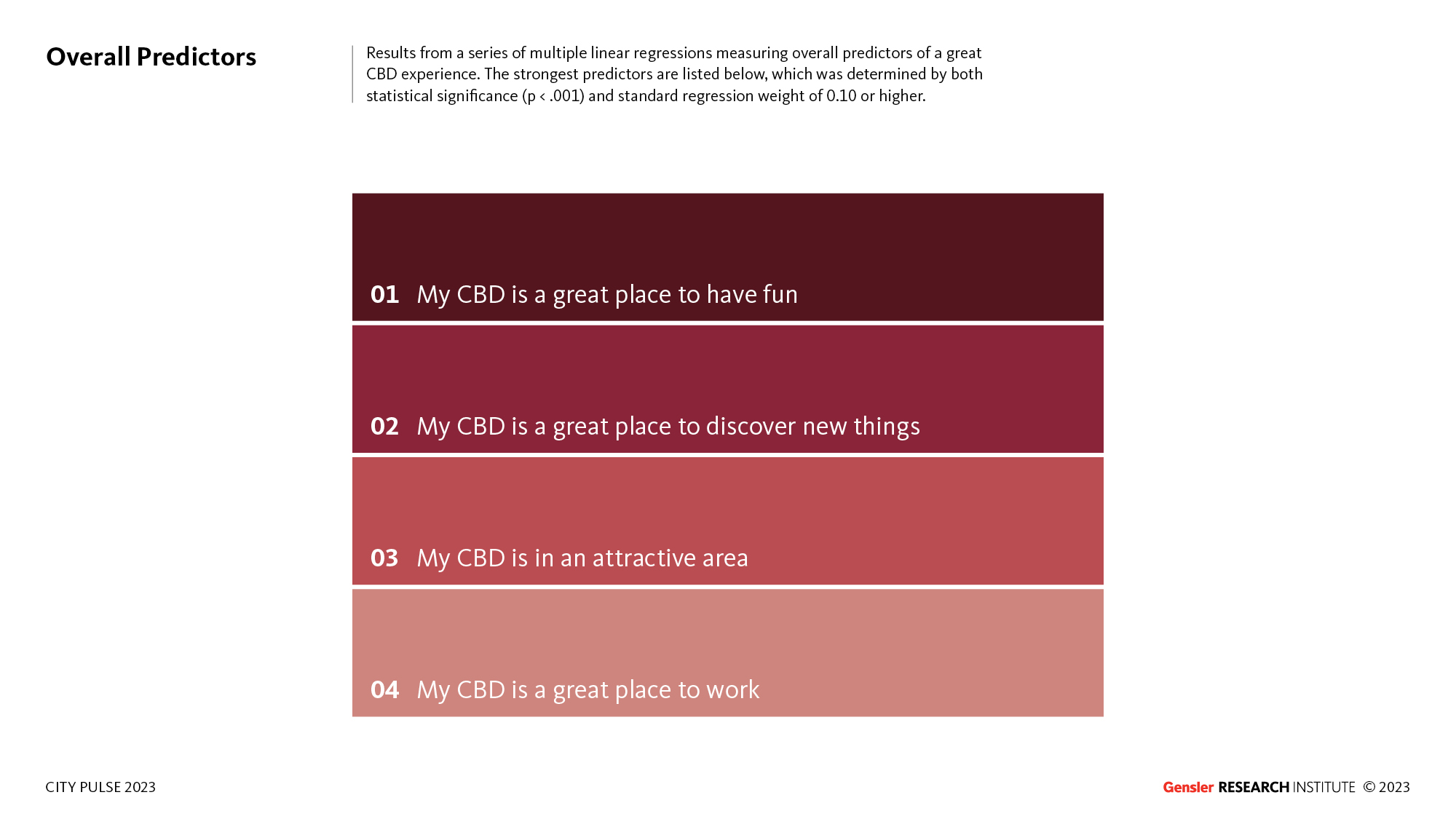
Central business districts must provide recreation, opportunities for discovery, and beautiful surroundings to continue to appeal to city dwellers.
The design of CBDs transcends aesthetics — it influences every aspect of the urban experience. Physical design improvements cannot be separated from their human impact. The analysis shows that CBDs must deliver opportunities for fun, discovery, and beauty to appeal to a broad audience of city dwellers. Downtowns that prioritize informal gathering spaces, promote walkability, and pursue activation through community amenities will create an authentic sense of place for downtown residents, employees, and local visitors.
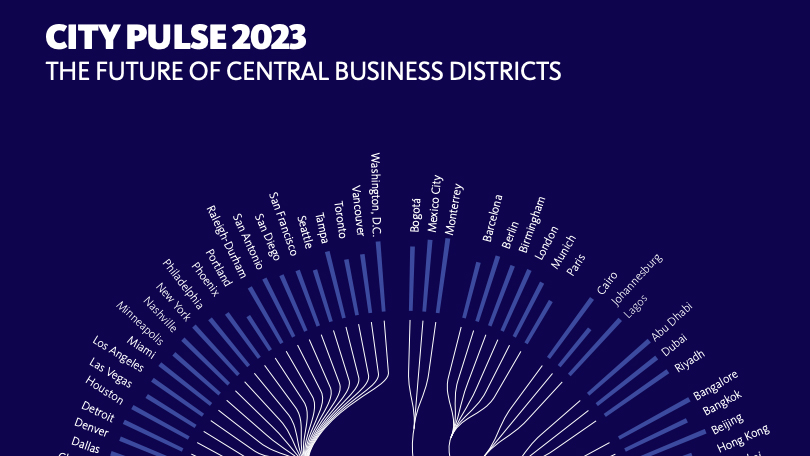
For media inquiries, email .
